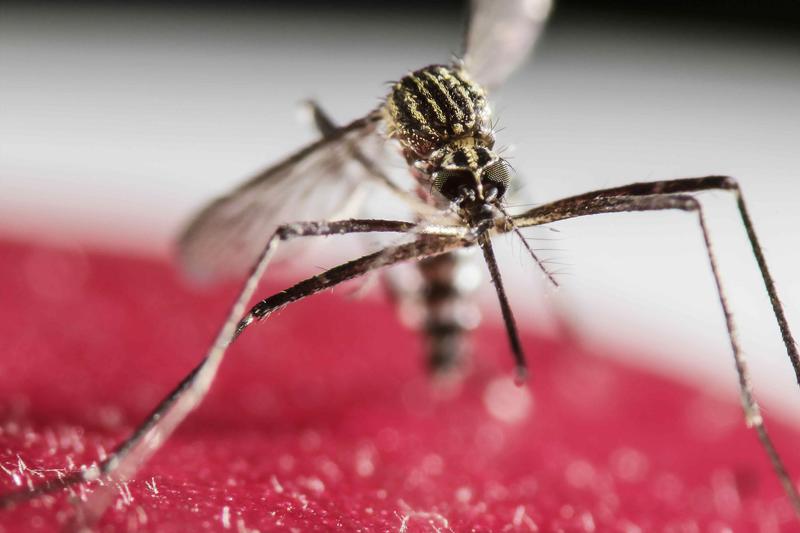This post may contain affiliate links. We may earn money or products from the highlighted keywords or companies or banners mentioned in this post.
February 19, 2016

by Eileen Ogintz, Tribune Content Agency, February 19, 2016
Cancel or go?
That’s what a lot of families are asking themselves as the Zika virus continues to spread through the Caribbean, including Mexico, Puerto Rico and the U.S. Virgin Islands, the Dominican Republic and Jamaica, among others — all popular spring break destinations for families, as well as their college students.
The good news, according to the Centers for Disease Control and Prevention, only one in five people infected with Zika (primarily through the bite of an infected Aedes species mosquito) will get sick. So far, those who have gotten sick in the U.S. were infected outside of the country, though it appears the virus can also be spread through sexual contact. And once you have Zika, you are unlikely to get it again. The bad news, as we all now know, however, is that Zika has been linked to devastating birth defects of the brain called microcephaly.
If you are pregnant or trying to become pregnant, the CDC recommends that you postpone travel to any area where Zika virus transmission is ongoing. (For the latest information about Zika virus and travel, visit www.cdc.gov/zika.) But what about the rest of us, especially kids?
At the moment, there is no evidence that Zika virus is serious in young children or older children, said Dr. H. Cody Meissner, a professor of pediatrics at Tufts University School of Medicine and a member of the American Academy of Pediatrics Committee on Infectious Diseases. To date, the CDC says, there are no reports of infants getting Zika virus through breastfeeding.
Dr. Meissner cautions that infants aren’t fully immunized and could be at risk to other diseases like measles. Even flying with infants can pose a risk from fellow passengers who unwittingly may be spreading colds and flu or worse .”If you have a newborn, that’s not the time to go on vacation,” he said.
You also shouldn’t use insect repellent on babies younger than two months, the CDC says — another reason to skip a trip to impacted areas right now. Use mosquito nets on strollers and make sure there are screens on windows. Also consider clothes that are treated with repellent. I’ve used them very effectively. (You can get them at REI, L.L. Bean and ExOfficio, among other places.)
For anyone, the best method to avoid any risk from mosquito and other insect bites is to follow the CDC guidelines, which include covering exposed skin by wearing long-sleeved shirts, long pants and hats and use an appropriate insect repellent. Apply sunscreen before insect repellent. Dress kids in clothing that covers arms and legs — admittedly tough during the day when mosquitoes bite. Make sure when you go to bed, the windows are either shut or have screens.
Just FYI, this same mosquito also carries Dengue Fever, which I know from personal experience is no fun — my daughter got very sick while doing an internship in Nicaragua.
Of course, no one wants to get sick on vacation or come home sick. Of course, you think it isn’t going to happen to you. But remember, there really isn’t a treatment for Zika, or a vaccine. If you have symptoms — fever, rash, joint pain and conjunctivitis — all you can do is rest, drink a lot of fluids and take acetaminophen to reduce fever and pain. Also consider that you could be infected, not know it and then get bitten by another mosquito that then goes on to infect someone else.
If you don’t want this pesky bug to derail your plans — and resorts are quick to say they are doing all they can to keep bugs at bay — the CDC says you should make not getting bitten a priority.
If you’d rather avoid the hassle entirely — maybe head to the snow instead — airlines, resorts and cruise lines seem to be offering refunds or credits for future travel on a case-by-case basis. Just Google your carrier, hotel or cruise line and Zika virus to find out what they will do for you.
If you have booked on one of Carnival‘s 10 brands, for example, and are pregnant, the company will offer you alternate itinerary options or a future cruise credit. “We are proactively providing all of our guests with information regarding Zika,” the Carnival spokesman said, adding, “We have not altered any of our itineraries but are closely monitoring the U.S. CDC and PAHO (Pan American World Health Organization) travel advisories for any updates to the Zika transmission areas and communicating with our guests accordingly.”
Karisma resorts notes that no cases of the Zika virus have been reported at or near any of their properties in the Riviera Maya, Mexico, Jamaica or the Dominican Republic. But the company will honor any related requests to refrain from travel at this time without penalty.
This is one case you can’t necessarily count on travel insurance, unless you have bought a policy that allows “cancel for any reason.” Most policies don’t cover cancellation due to fear of travel, explained Megan Freedman, executive director of the US Travel Insurance Association. Read the fine print carefully.
If you are pregnant, Freedman added, and your doctor has advised against travel to an area affected by Zika, check with your travel insurance carrier to see if, in that case, you would be covered. “It is going to vary by company,” she said.
Clearly, if you have concerns and have booked already, see what your hotel will do for you. It’s certainly not unreasonable to ask for a refund in this case and remember, they want happy customers.
“We don’t know the full spectrum of the disease,” warned Dr. Meissner. “This is an individual decision every family has to make.”
(For more Taking the Kids, visit www.takingthekids.com and also follow “taking the kids” on www.twitter.com, where Eileen Ogintz welcomes your questions and comments.)
This article was written by Eileen Ogintz and Tribune Content Agency from Taking The Kids and was legally licensed through the NewsCred publisher network.
![]()
What do you think of this $type?










